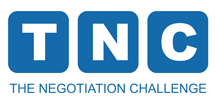Framing
Framing in negotiation refers to the strategic presentation and communication of information, issues, or proposals in a way that influences how the other party perceives and interprets them. It involves shaping the context and perspective of the negotiation to guide the other party’s understanding and decision-making process. Key aspects of framing in negotiation include: The […]
Asking questions
Asking questions in negotiation refers to the deliberate use of inquiries to gather information, clarify positions, understand interests, and uncover underlying needs or concerns from the other party. Questions play a crucial role in the negotiation process as they help negotiators gain insights into the other party’s perspective, priorities, and motivations. Key aspects of asking […]
Influence
Influence in negotiation refers to the ability of a negotiator to shape or impact the decisions, attitudes, and behaviors of the other party during the negotiation process. Effective negotiators employ various tactics and strategies to exert influence and persuade the other party to move towards their desired outcomes. Key aspects of influence in negotiation include: […]
Cognitive biases
Cognitive biases in negotiation refer to systematic patterns of thinking or decision-making that can lead negotiators to deviate from rational or logical judgment. These biases are a result of the brain’s attempt to simplify complex information processing and make quick judgments based on mental shortcuts, known as heuristics. While heuristics can be helpful in many […]
Common mistakes
Common mistakes in negotiation can hinder the achievement of favorable outcomes and damage the relationship between the parties involved. Recognizing and avoiding these mistakes can significantly improve the negotiation process and lead to more successful results. Here are some common negotiation mistakes and strategies to avoid them: By being mindful of these common negotiation mistakes […]
Multiple equivalent simultaneous offers (MESO)
Multiple Equivalent Simultaneous Offers (MESOs) is a negotiation technique where one party presents several distinct offers, each of which holds equal value to them, to the other party simultaneously. These offers are designed to address different aspects of the negotiation and provide flexibility to the other party in choosing the most appealing option. Key characteristics […]
Negotiation strategy
A negotiation strategy is a well-thought-out plan or approach designed to achieve specific objectives and guide the negotiation process effectively. It involves setting clear goals, identifying tactics and techniques, and anticipating potential challenges to increase the likelihood of reaching favorable outcomes. Key components of a negotiation strategy include: A well-designed negotiation strategy empowers negotiators to […]
Win-lose
Win-lose in negotiation refers to an outcome where one party achieves their objectives or gains an advantage at the expense of the other party. In this scenario, the negotiation process is often competitive, with each party trying to maximize their own interests, even if it means disregarding or undermining the interests of the other party. […]
Win-win
Win-win in negotiation refers to an outcome where both parties involved in the negotiation achieve their objectives and feel satisfied with the results. In a win-win scenario, each party’s interests, needs, and concerns are addressed, leading to a mutually beneficial agreement that creates value for both sides. This collaborative approach contrasts with win-lose situations, where […]
Negotiation tactics
Negotiation tactics are specific strategies or techniques used by negotiators to influence or gain an advantage during the negotiation process. These tactics aim to achieve better outcomes, create leverage, or navigate challenging situations. While some negotiation tactics may be considered ethical and constructive, others can be manipulative or deceptive. Here is a list of negotiation […]
